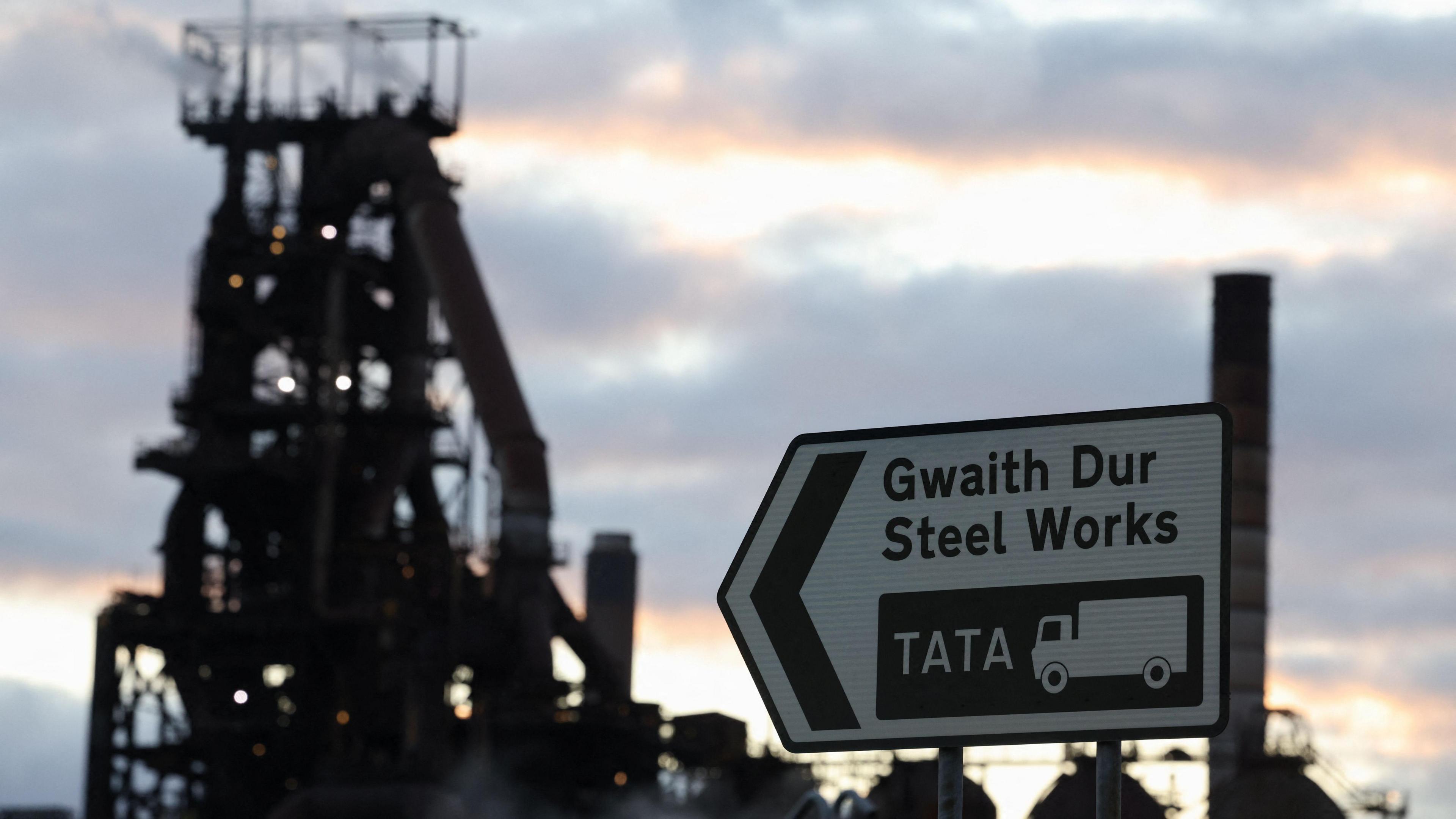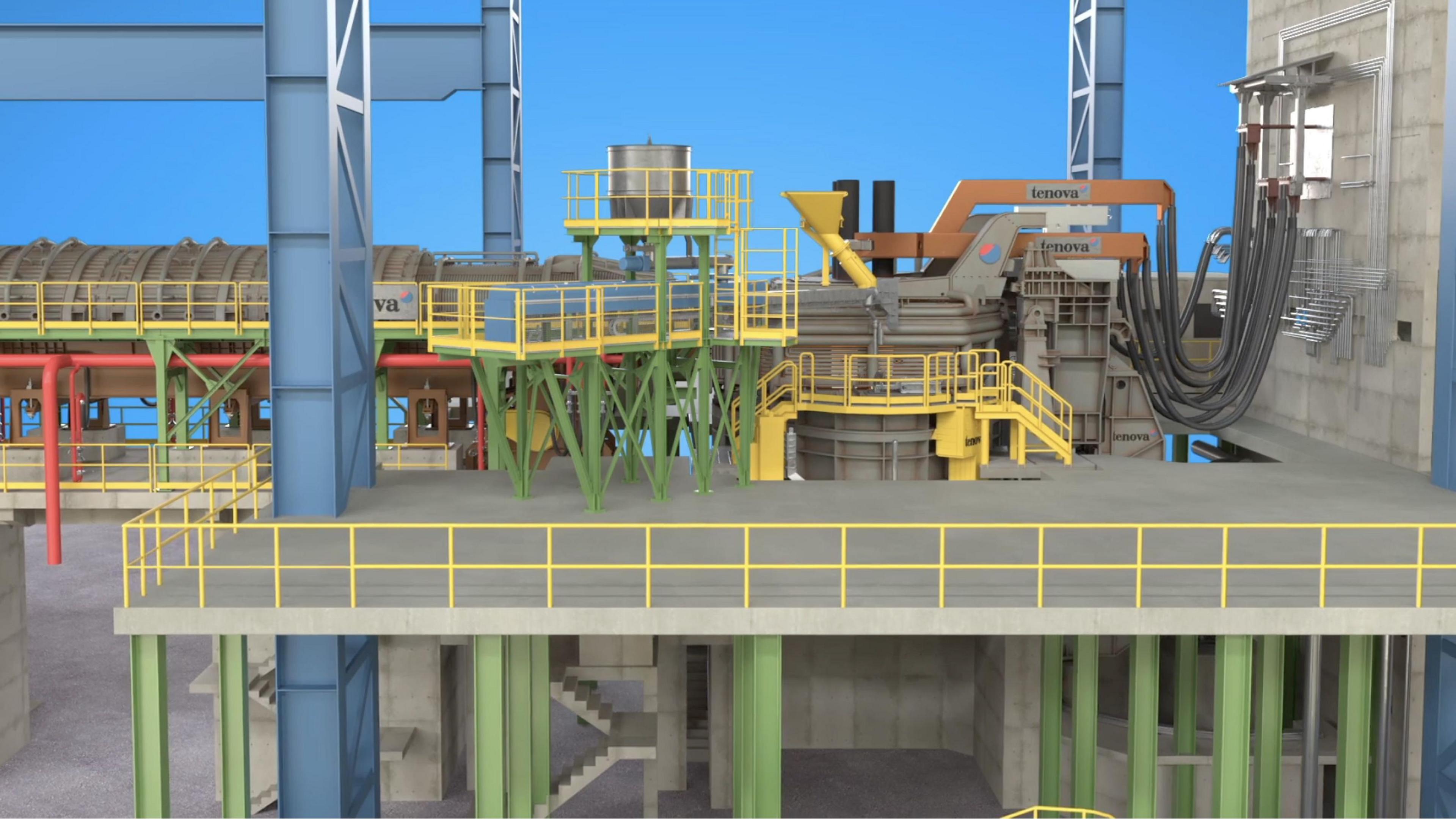What we know about Tata's new electric arc furnace

Port Talbot steelworks closed both its blast furnaces on September 30th
- Published
Tata Steel has signed a contract to bring the latest green steelmaking technology to south Wales, less than a month after closing both its blast furnaces.
Metals and mining solution company, Tenova, confirmed they will supply the £1.25bn electric arc furnace, which is anticipated to be up and running by the end of 2027.
When it comes online it is expected to be the biggest of its kind in the world, melting mostly scrap to produce three million tonnes of new steel a year.
It is a significant moment in the transformation of Port Talbot, the site of the UK’s largest steelworks which put 2,800 jobs at risk at its closure.
Unions angry as Tata job loss announcement looms
- Published1 November 2023
UK government confirms £500m Tata Steel subsidy
- Published11 September 2024
The signing confirms the furnace will be built, and to a tight timescale.
It also addresses persistent rumours about whether Tata Steel would commit to the new technology as it wound down the heavy end of steel production in Port Talbot on 30 September.
During the months of discussions about its restructuring, there were many in the workforce and the local community who cast doubt on whether the new furnace would materialise.
There were others who thought we may reach the end of the decade before the cleaner way of making steel would arrive in south Wales, long after the impact of this year's job losses had been most acutely felt.

The electric arc furnace will have an annual capacity of three million tonnes of steel
The company had consistently said it would press ahead with the new furnace, and secured a £500m grant towards the cost from both the previous Conservative government and the new Labour-run administration in Westminster.
The announcement confirms the binding contract has been signed, and commits to creating greener steel in Port Talbot within three years.
The electric arc furnace will melt mostly scrap steel and will reduce carbon emissions by 90% compared to the blast furnace technology that has recently been lost.
The workforce required to run the new furnace will be small compared to the 2,000 in Port Talbot who manned the heavy end of iron production, and who will be leaving the site as part of the redundancy process over the coming months.
There will be pressure on Tata Steel to commit more to south Wales, but the announcement confirms its existing plans - first outlined in January - remain on track.